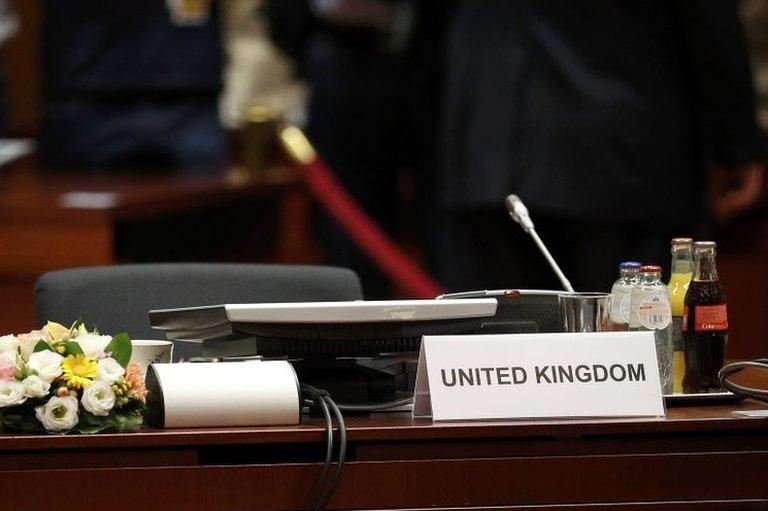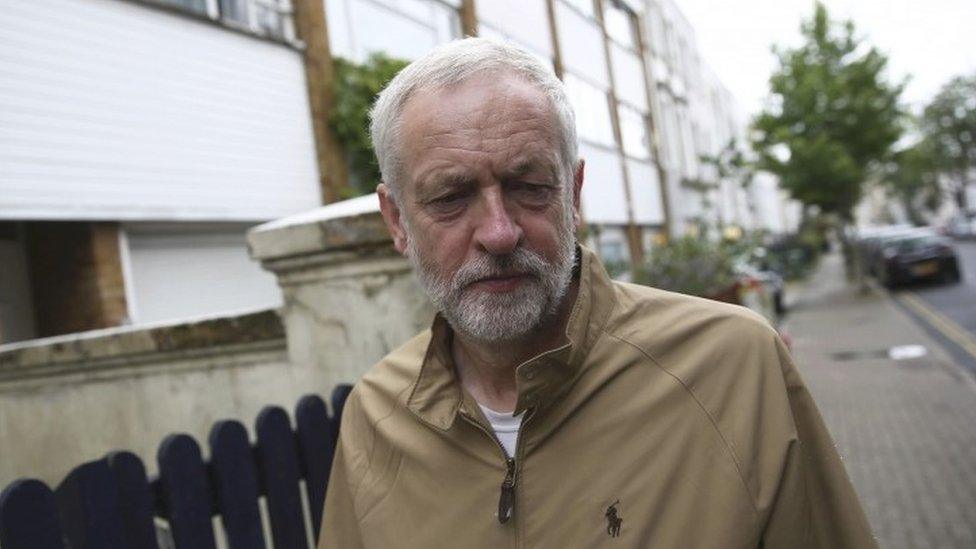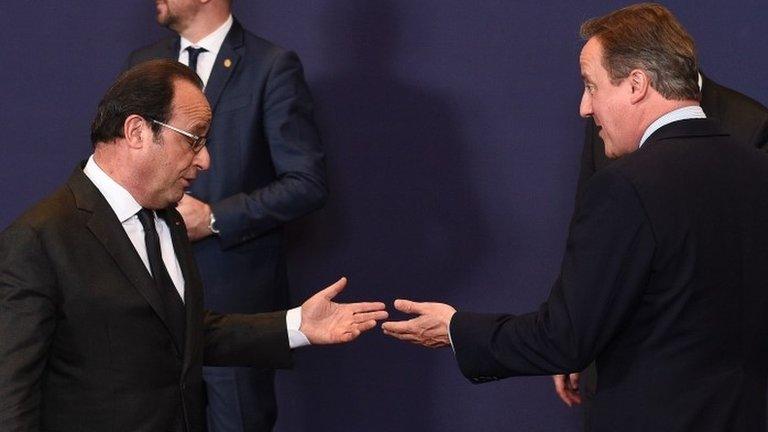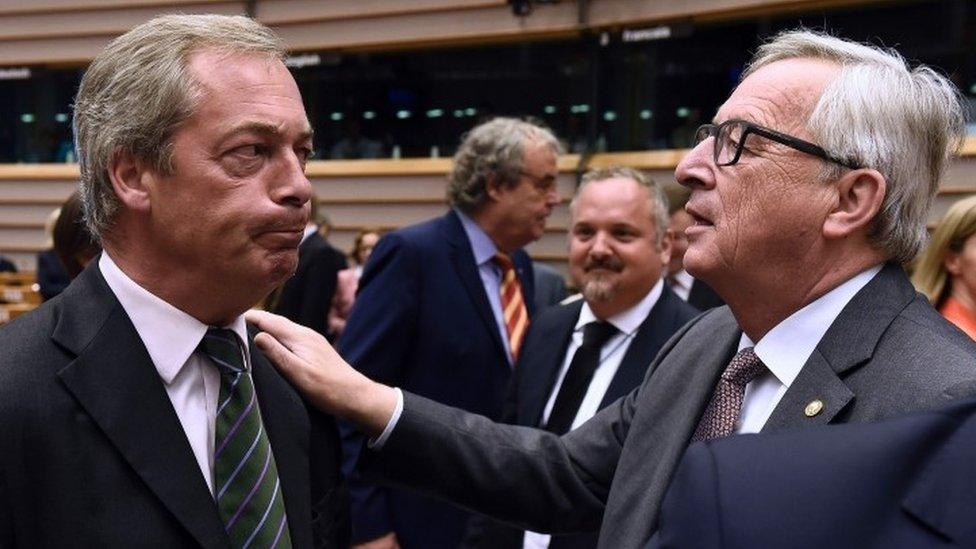Brexit: EU leaders meet without Cameron
- Published

The UK seat will be empty during the second day of the summit in Brussels
European Union leaders are meeting on day two of what has become a crisis summit in Brussels, but without the UK after its vote to leave the bloc.
The 27 other member states will discuss plans for the UK's EU exit, with the UK absent from negotiations for the first time in 40 years.
On Tuesday, UK PM David Cameron said continued trade and security co-operation with the EU would be vital.
Germany's Angela Merkel urged the bloc to "respect the result" of the UK vote.
She and other leaders also renewed calls for Britain to set out plans for leaving as soon as possible.
In the latest reaction:
Charles Michel, the prime minister of Belgium, said the UK "cannot afford the luxury of having a long-drawn-out political crisis", adding the EU was facing a "wake-up call" and needed to make "a bigger effort, in a concrete way, to promote the European project"
Other leaders called for the remaining 27 nations to pull together to ensure a stable future for the union
"With a disunited United Kingdom, we need a united Europe more than ever," said Luxembourg Prime Minister Xavier Bettel
Lithuania's President Dalia Grybauskaite said the remaining leaders "need to wake up and smell the coffee"
David Cameron: "Britain... will not, should not, and in my view it won't, turn its back on Europe"
As things stand, the EU and UK are in deadlock. EU leaders insist there can be no negotiation before the UK has formally invoked Article 50 of the Lisbon Treaty, which will trigger the withdrawal talks.
Mr Cameron has said Article 50 should be invoked by his successor as Prime Minister, effectively pushing the beginning of the process back until October at the earliest.
He left the EU summit, his last, on Tuesday night with no clear plan in place, having resisted pressure from some of his counterparts to hasten Britain's exit from the union.
'No cherry-picking'
On Tuesday, Mr Cameron said the rest of the EU wanted to have the "closest possible" relationship with the UK after Brexit.
But he said immigration was a "great concern" among UK voters and squaring this with access to the EU single market would be a "huge challenge".
The BBC's Chris Morris in Brussels says there will be calls for unity and for reform, and promises will need to be put into practice quickly because the UK referendum had shaken Europe to the core.
In Brussels, German politicians insisted the UK could not "cherry-pick" aspects of the EU. Mrs Merkel stressed that the UK must accept free movement if it wanted to retain access to the single market.
"We all regretted the result and made clear that the legal procedure must be that the UK invokes Article 50," she said. "Mr Cameron said he would hand it over to the new government to do. We all agreed that before that point, there can be no formal or informal negotiations."
She added: "We can see no way to turn this around. It's not a time for wishful thinking, but of contemplating the reality."
Jean-Claude Juncker: "If you are out, you are out'
European Commission President Jean-Claude Juncker said the UK did not have "months to meditate" on activating Article 50.
"If someone from the Remain camp will become British prime minister, this has to be done in two weeks after his appointment," he said.
"If the next British PM is coming from the Leave campaign, it should be done the day after his appointment."
The EU also issued a statement dismissing reports that English would be dropped as an official language of the group.
- Published19 June 2016

- Published28 June 2016

- Published28 June 2016
